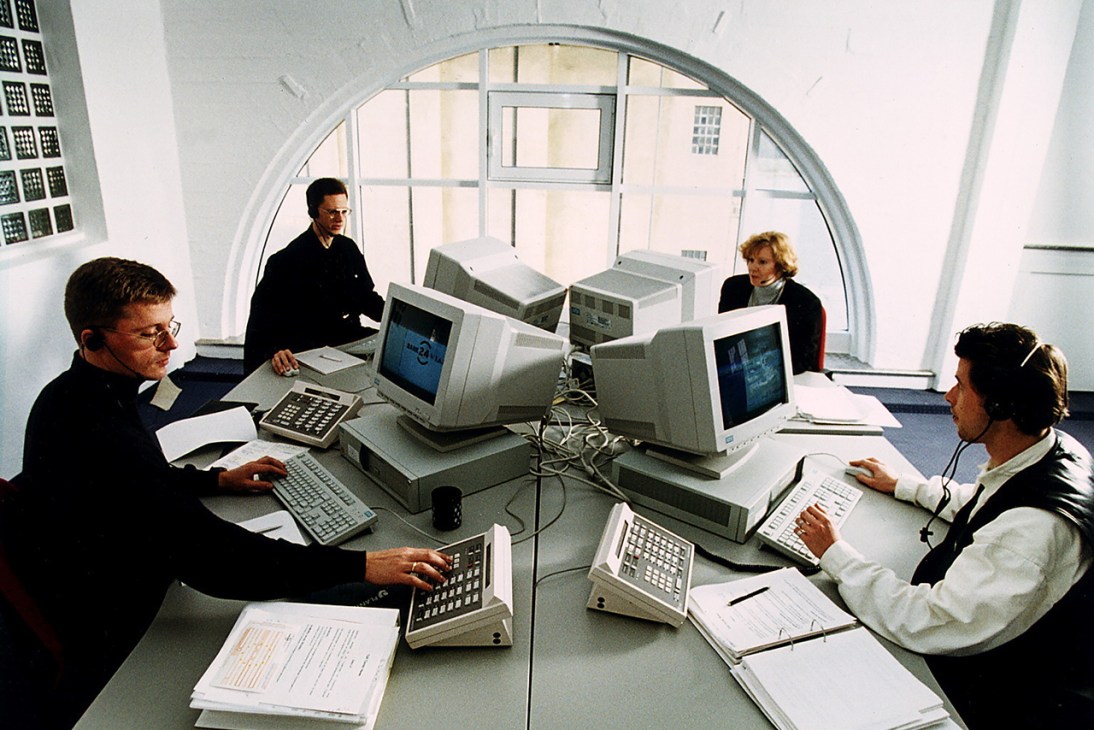‘Free the laptops!’ Why Germany’s digital overhaul can’t come soon enough
Can a new ministry, a former technology executive and €500bn drag the country out of the analogue age?
Germany’s legacy administrative systems almost ruined my wedding. I have many fond memories of the build-up to the big day but also one terrible recollection: having to gather a pile of paper documents from offices across Germany to submit to the registry in Munich. Fortunately, this laborious task didn’t scupper our plans – but it was illustrative of how outdated systems are stymying the entire country.
We might be the world’s third-largest economy with enviable engineering prowess but our bureaucracy and systems are notoriously analogue. So many of the processes that citizens rely on involve pieces of paper locked away in filing cabinets or make use of software that’s regarded as obsolete in many other countries. This was underlined by the coronavirus pandemic, during which the German government was derided for trying to do contact tracing using fax machines.

More recently it emerged that Deutsche Bahn, the national railway, still uses a decades-old computer operating system. The World Digital Competitiveness Ranking, published by the International Institute for Management Development in Switzerland, puts Germany at a tragic 23rd place out of 67 economies. A 2024 study by the Ifo Institute, an economic think tank, showed that if Germany caught up with Denmark in digitalising its administration, its GDP would grow by €96bn.
Our underdevelopment on this front is symptomatic of a dispersed political structure. After the fall of the Nazis, the country went to great lengths to avoid centralising power, giving a lot of autonomy to states and cities. This often meant that they developed separate software packages to run local services, as well as their own ways of doing things. Such fragmentation still hinders co-operation. A long-held commitment to data protection has further hampered the adoption of digital services.
Amid an expected third consecutive year of recession, Germany is currently in the process of rewriting the rules of how it is run. It has been working to loosen its previously airtight fiscal rules to allow for greater borrowing to splurge on defence and infrastructure. And now, somewhat late to the game, it is finally looking to go digital. The still fairly-new chancellor, Friedrich Merz, has set up a long-awaited digital ministry. Somewhat surprisingly, he appointed a political outsider as its head: Karsten Wildberger, a 55-year-old with a doctorate in physics and executive experience at firms relying on different technology networks: telecommunications company Vodafone, energy company E.On and, most recently, electronics retailer Mediamarktsaturn, where he was CEO.
Wildberger was publicly received with a mix of optimism and eyerolls – one pundit described him as “the man who has been trying to sell you fax machines and now wants to take them all away from you again”. Despite the sarcasm, he has been handed real power. His newly minted Bundesministerium has obtained a veto over the digital projects of others, a high ranking in the government’s list of federal ministries (which serves as a kind of league table for their political sway) and responsibility for issues previously scattered across six departments, including parts of the much-coveted cybersecurity beat. Merz clearly means business about getting Germany up to speed.
To do that, Wildberger has three priorities. First, he’ll seek to expand mobile and fibre-optic networks to boost phone coverage and internet access. Second, he will work to offer public services through a new digital wallet by centralising standards and establishing best practices from two pioneering federal states. Finally, he will seek to reduce annual costs for businesses by billions of euros by cutting red tape by 25 per cent. All three of these goals are now more achievable thanks to Germany’s new fiscal flexibility and its specially assigned assets of €500bn over 12 years to invest in infrastructure including digitalisation. On the back of that boost, Merz should continue to vigorously back the dynamism that Wildberger’s new ministry represents.
Under Germany’s last chancellor, there was great public debate over the question of whether to send Leopard tanks to Ukraine, with some people taking up the battle cry “Free the Leopards!” Under its new plans, and its push for the future, Germany should unite behind a new rallying cry: “Free the laptops!”
Schmidt is Monocle’s Munich correspondent. Germany is at a crossroads – read our reporting on the historic election that brought Friedrich Merz to power.


